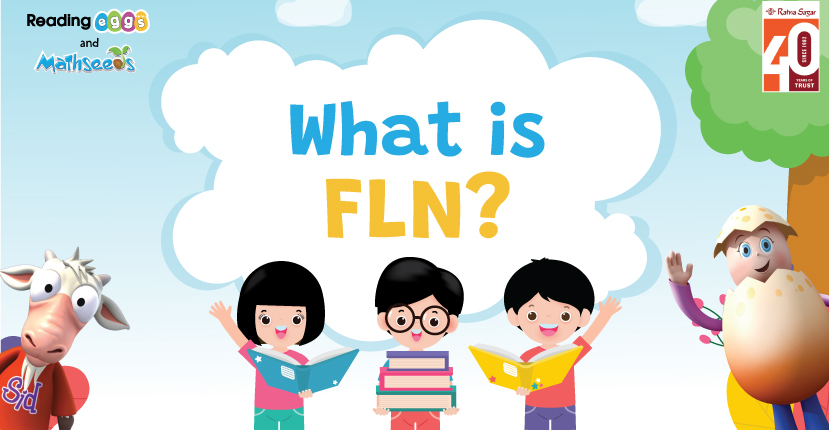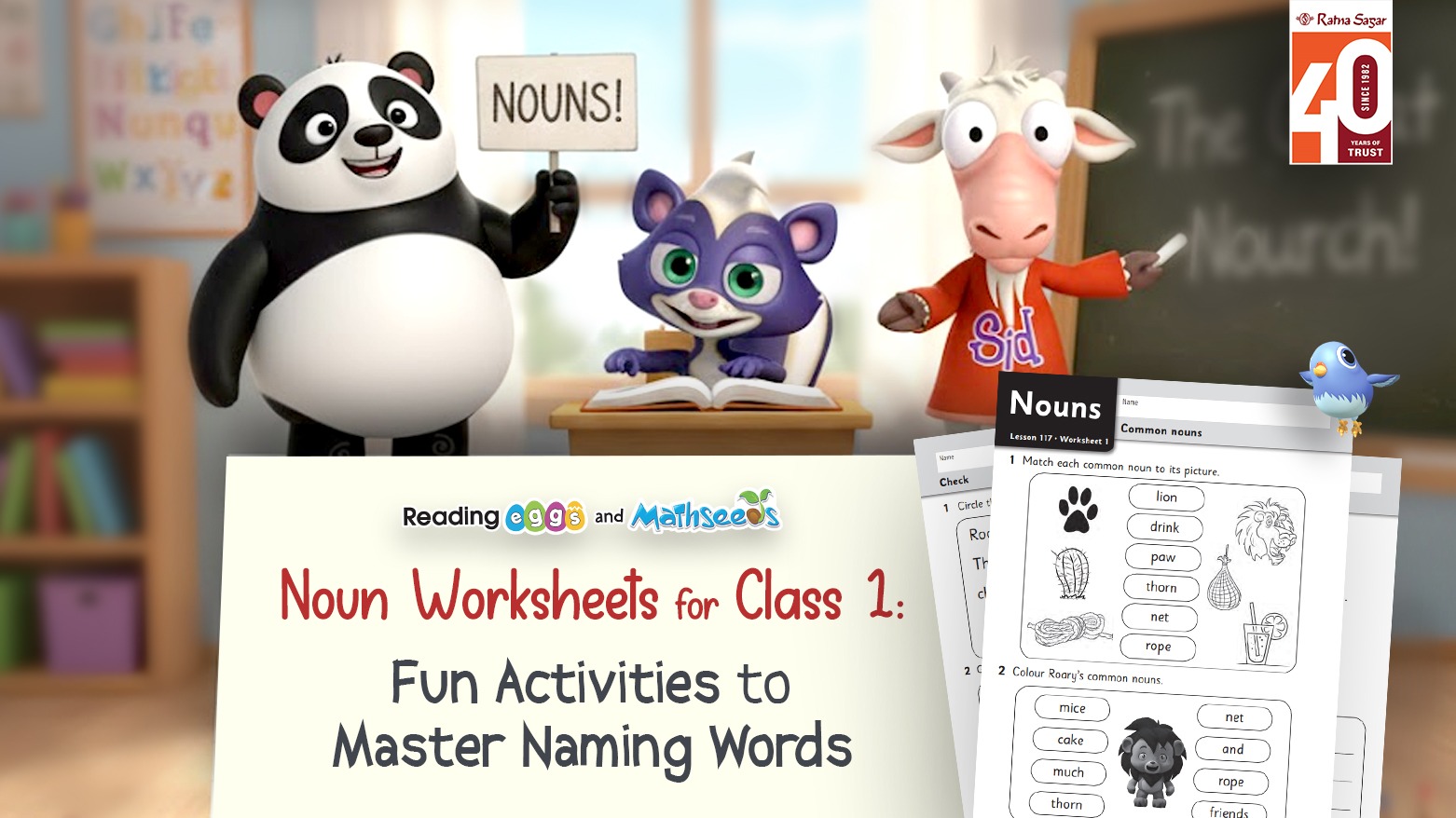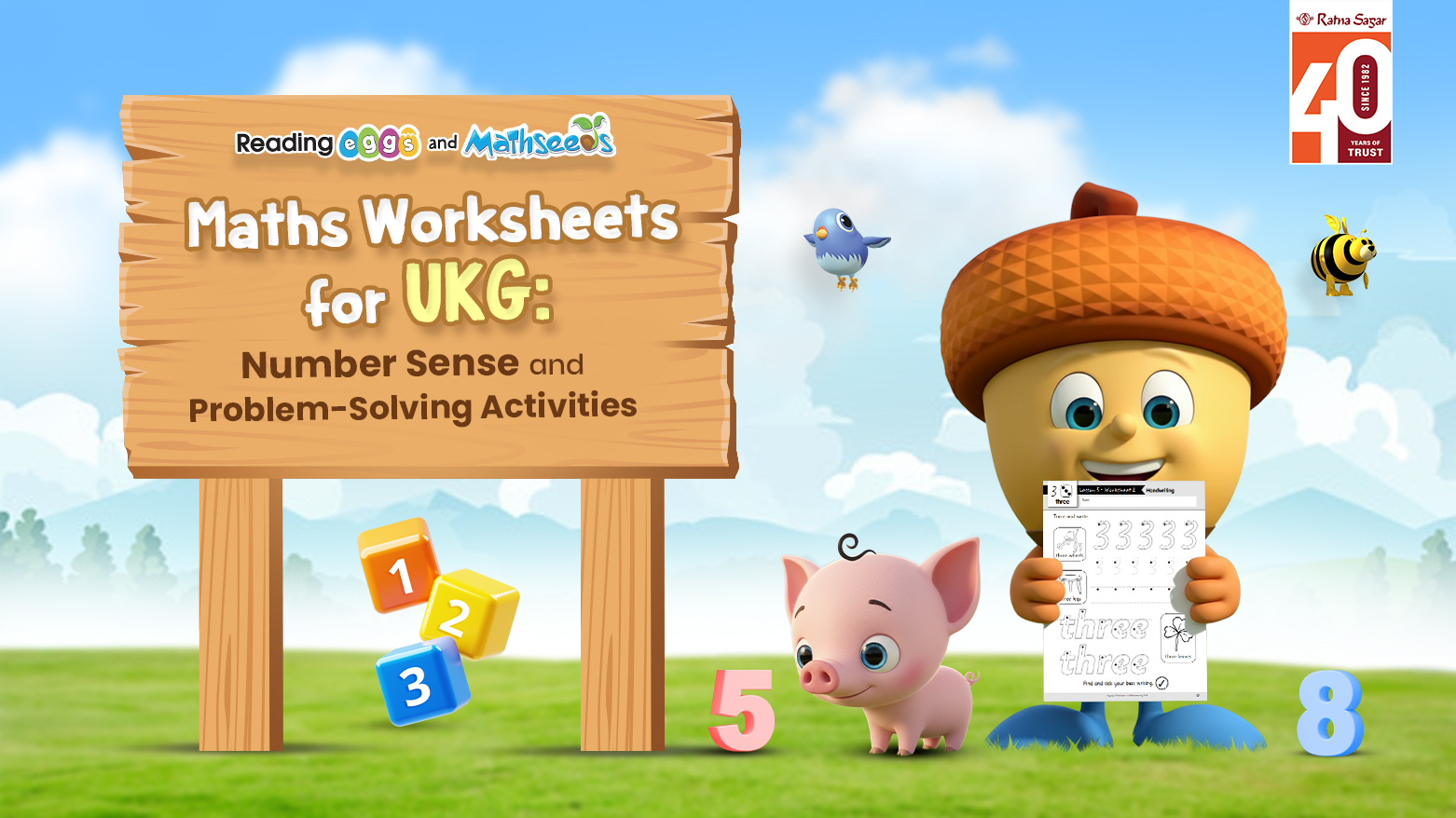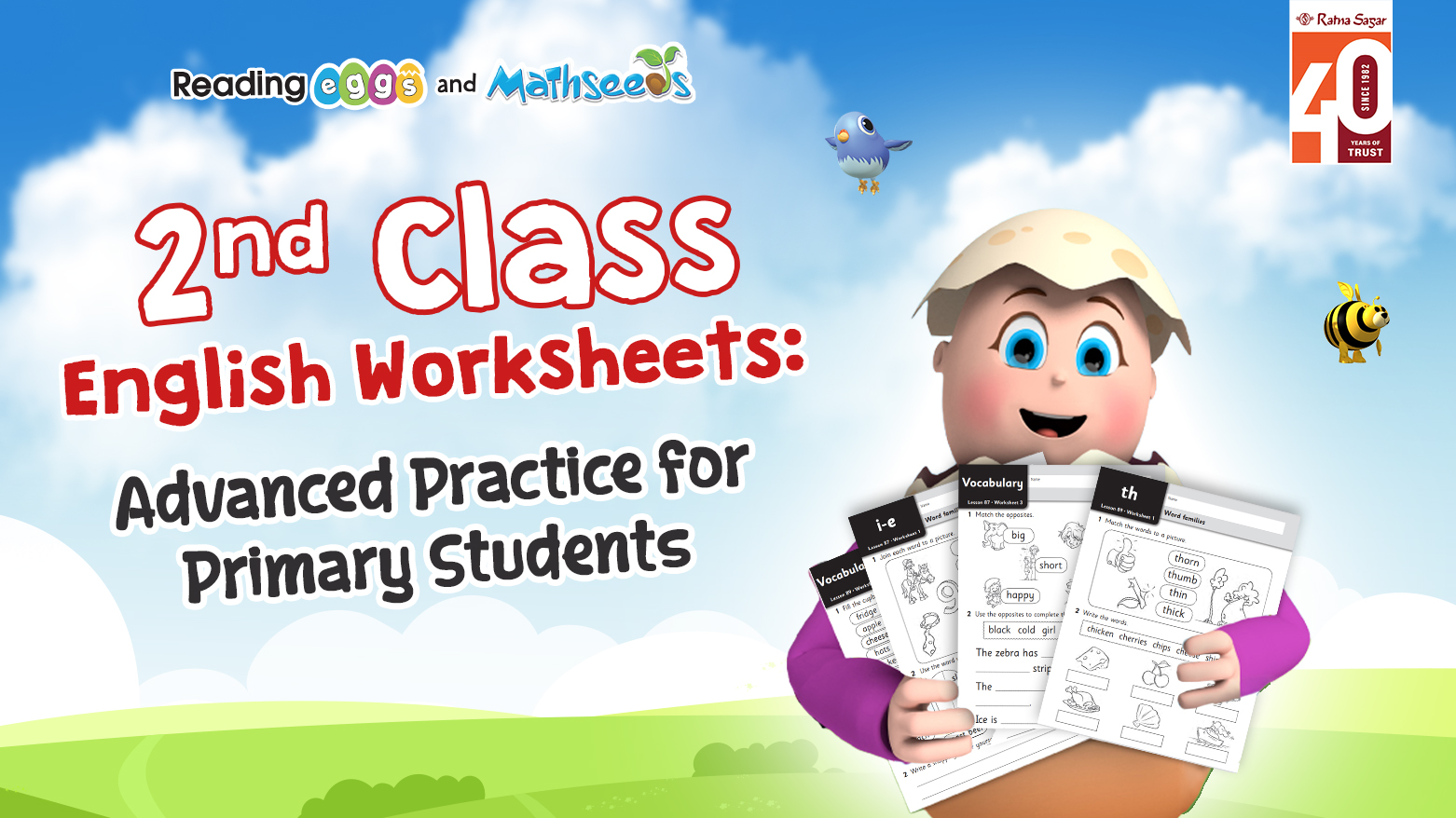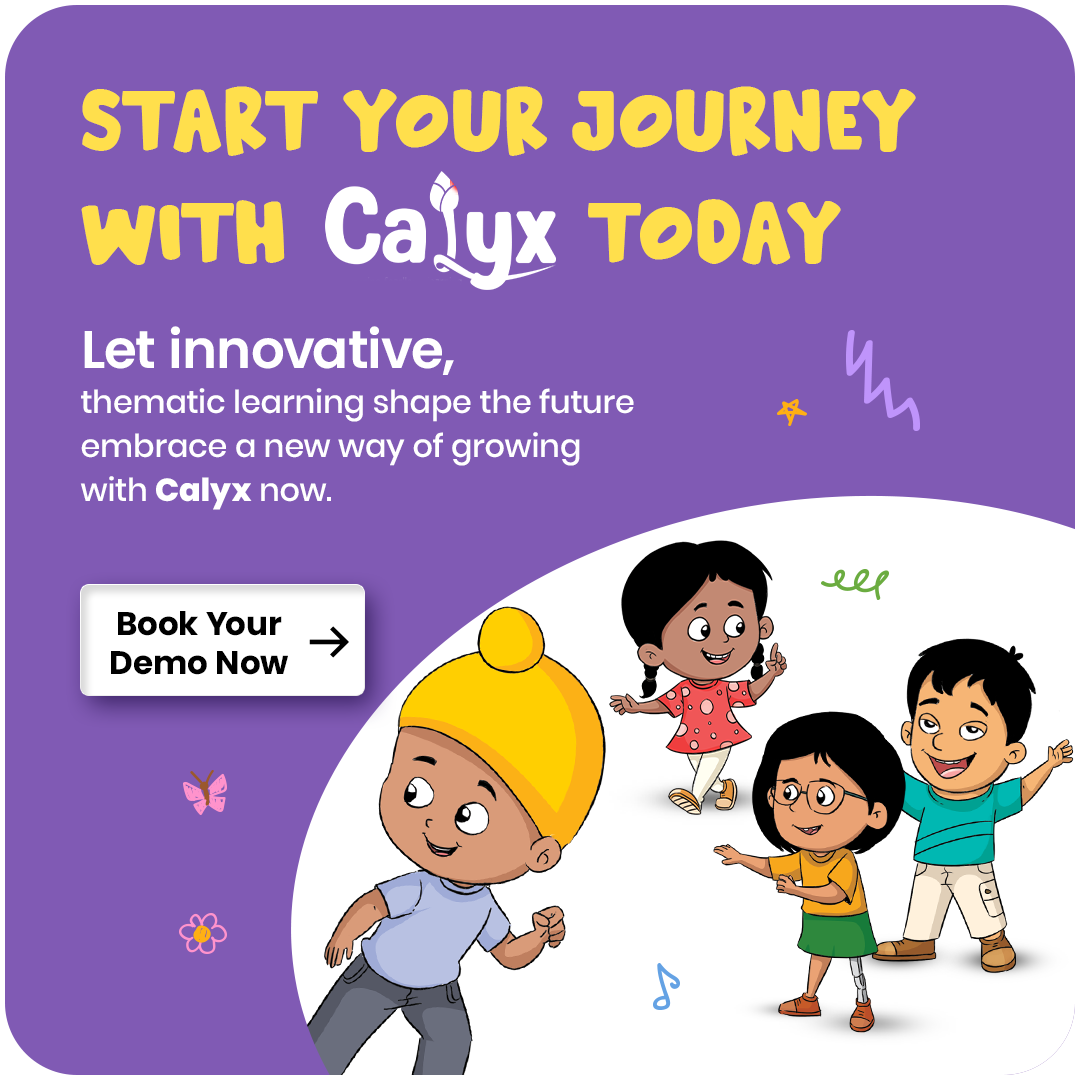What is FLN OR Foundational Literacy and Numeracy?
A society that thrives on the exchange of ideas, dialogues, and high levels of innovation is one that is most productive. The key to cultivating such a society is the establishment of a foundation grounded in literacy. When children in a society are introduced to learning early in life, they have the potential to grow into individuals who actively contribute to the development of a literate and informed community. This emphasises the importance of embracing the concept of Foundational Literacy and Numeracy or FLN. Foundational Literacy and Numeracy (FLN) refers to the fundamental building block of education, focusing on essential skills like reading, writing, and basic mathematics. It forms the bedrock of a person's ability to comprehend and communicate effectively, as well as to navigate numerical concepts.
Book 7 days FREE trial For Reading Eggs with Ratna Sagar
Before we delve deeper into the subject, let us answer some commonly asked questions about FLN:
What is the full form of FLN?
Ans. FLN stands for Foundational Literacy and Numeracy.
What are the key components of FLN?
Ans. Reading, speaking, writing, and simple numerical concepts like addition, subtraction, multiplication, and division.
What is the age range of the foundational stage?
Ans. 3-8 years.
What are the advantages of FLN?
Ans. FLN enables all children to read and respond with comprehension, independently write with understanding, and develop number sense, mathematical thinking, problem-solving, and reasoning. Moving ahead, let us go deeper into the concept of FLN. Fundamental Literacy: This encompasses the skills and strategies involved in reading, speaking, writing, and interpreting thoughts. It includes the ability to recognize and understand letters, words, and sentences. Individuals with strong foundational literacy skills can comprehend written information, interpret texts, and extract meaning from various written materials. Writing: This involves basic skills such as forming letters, spelling, and constructing sentences. It enables individuals to express themselves coherently through written communication. Foundational Numeracy: This is the ability to reason and apply simple numerical concepts. It consists of comprehending fundamental arithmetic operations like addition, subtraction, multiplication, and division. Proficiency in these basic operations is essential for solving more complex mathematical problems later in education. Number Sense: This involves understanding the concept of numbers, their relationships, and the ability to manipulate them. Number sense is foundational for developing mathematical reasoning and problem-solving skills. FLN is a pivotal cornerstone in the field of education. In the era marked by increasing demands from a knowledge-based society, proficiency in foundational literacy and numeracy goes beyond being a mere scholastic requirement; it emerges as a fundamental catalyst for individual empowerment, societal progress, and economic development. Here are the key reasons why fundamental literacy is important: Empowerment: Foundational Literacy empowers children by fostering communication, critical thinking, and self-expression, enabling them to navigate and contribute meaningfully to the world around them. It serves as a fundamental tool for personal development and societal engagement. Communication: It allows children to express themselves clearly and understand information conveyed through written and verbal means. Education: Literacy is the gateway to education. It enables children to engage with and benefit from formal education systems. Without basic literacy skills, people may struggle to grasp academic concepts and hinder their overall learning experience. Foundation for Future Success: Early literacy is crucial for children as it lays the foundation for future academic success, enhances cognitive development, and fosters a lifelong love for learning, providing essential skills for effective communication and comprehension. Health Literacy: Understanding health-related information is crucial for maintaining personal well-being. Literate children are better equipped to comprehend health instructions, make informed health choices, and access healthcare services effectively. Social Integration: Early literacy and numeracy facilitate social integration by enabling children to engage with their communities, understand cultural norms, and participate in social activities. It fosters a sense of belonging and connection. Lifelong Learning: Literacy is not just a skill for specific stages of life; it forms the basis for lifelong learning. In a rapidly changing world, the ability to acquire new knowledge and skills is essential, and literacy is the tool that facilitates ongoing learning. Recognizing the importance of early learning, the National Education Policy 2020 has kept FLN as its highest priority. It aims at fostering reading, writing, and arithmetic at the foundational level. Its foremost goal includes empowering every child in reading with comprehension, performing basic mathematical operations, and learning basic life skills, by Grade 3. To promote Foundational Literacy and Numeracy (FLN) in children, various courses and programs have emerged. Among them, Reading Eggs and Mathseeds are particularly noteworthy. Let's take a look at their features and how they foster FLN:
- Reading Eggs and Mathseeds makes learning to read easy and fun by combining online kids' books with reading games and activities. With one-on-one lessons, hundreds of educational games, free reading worksheets, and more.
- Includes a comprehensive range of lessons covering phonics, sight words, vocabulary, comprehension, spelling, grammar, and more developed by experienced educators.
- Helps build key phonic skills in young children. Children learn the letters that represent the corresponding phonemes. They also learn to blend them together into words. For example, a child is taught to read the letters in a word like b‑a‑t, and then merge them to pronounce the word bat.
- Recognizes the important link between children learning sight words and becoming fluent and efficient readers. Many instructional activities within the Reading Eggs and Mathseeds programme aim to develop a child’s bank of known sight words so that they can automatically recall them at sight.
- The programme also inculcates reading for meaning as an approach to help children actively engage with the material, making connections, drawing inferences, and forming interpretations.
- The programme is built around recognized learning principles and scientific research proven to rapidly improve children's literacy skills.
- Teaches pre-number concepts such as counting, understanding the number system, doing number operations, and learning conventions needed for the mastery of mathematical techniques like addition, subtraction, multiplication, and division.
Foundational Literacy and Numeracy (FLN) play a pivotal role in shaping an enlightened society. Empowering children with FLN ensures not only a promising future for them but also positions them to become contributors to both societal and national development. Reading Eggs and Mathseeds are dedicated to catalysing this transformative impact. Reading Eggs and Mathseeds with Ratna Sagar are in alignment with NEP 2020 and in full compliance with the SAFAL and NIPUN Bharat initiatives started by the Indian government for the enhancement of literacy and numeracy skills in young learners. Bringing foundational literacy and numeracy to India is among their foremost goals. Reading Eggs and Mathseeds with Ratna Sagar stands as a testament to their unwavering dedication to this cause.
